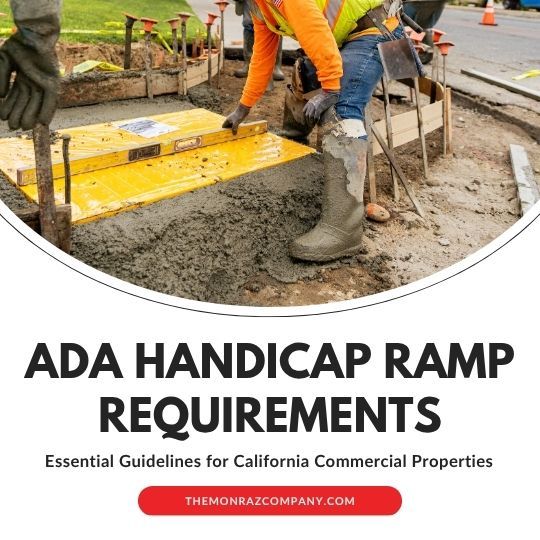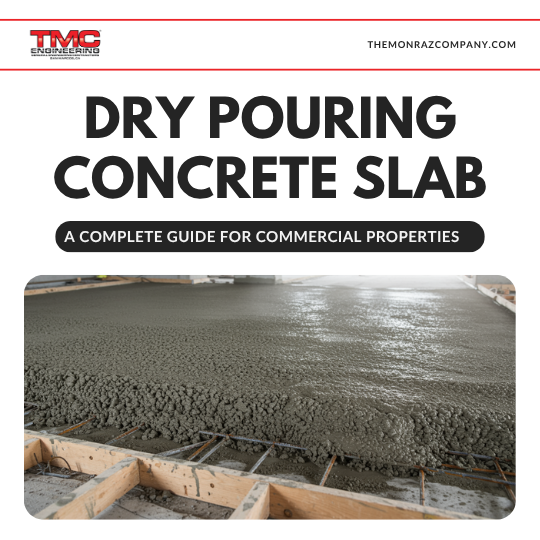What is Sealcoating?
When it comes to investing in your property, an asphalt driveway or pavement is among the best choices you can make. It not only enhances the curb appeal but also provides a durable and functional surface for your vehicles and outdoor activities!
Protecting your investment in pavement is crucial to ensure it stays in tip-top shape for years to come. One of the most effective ways to safeguard your asphalt driveway and pavement is through sealcoating !
Surprisingly, many property owners are unaware of the noteworthy benefits of sealcoating. That’s why today, we are dedicating this post to shed light on this essential process!
We’re going to dive deep into what sealcoating is, how it works, and most importantly, when is the best time to seal coat your asphalt driveways and pavements. So whether you’re a seasoned property owner or a new owner looking to protect your investmen t, here’s everything you need to know!
Let’s get started!
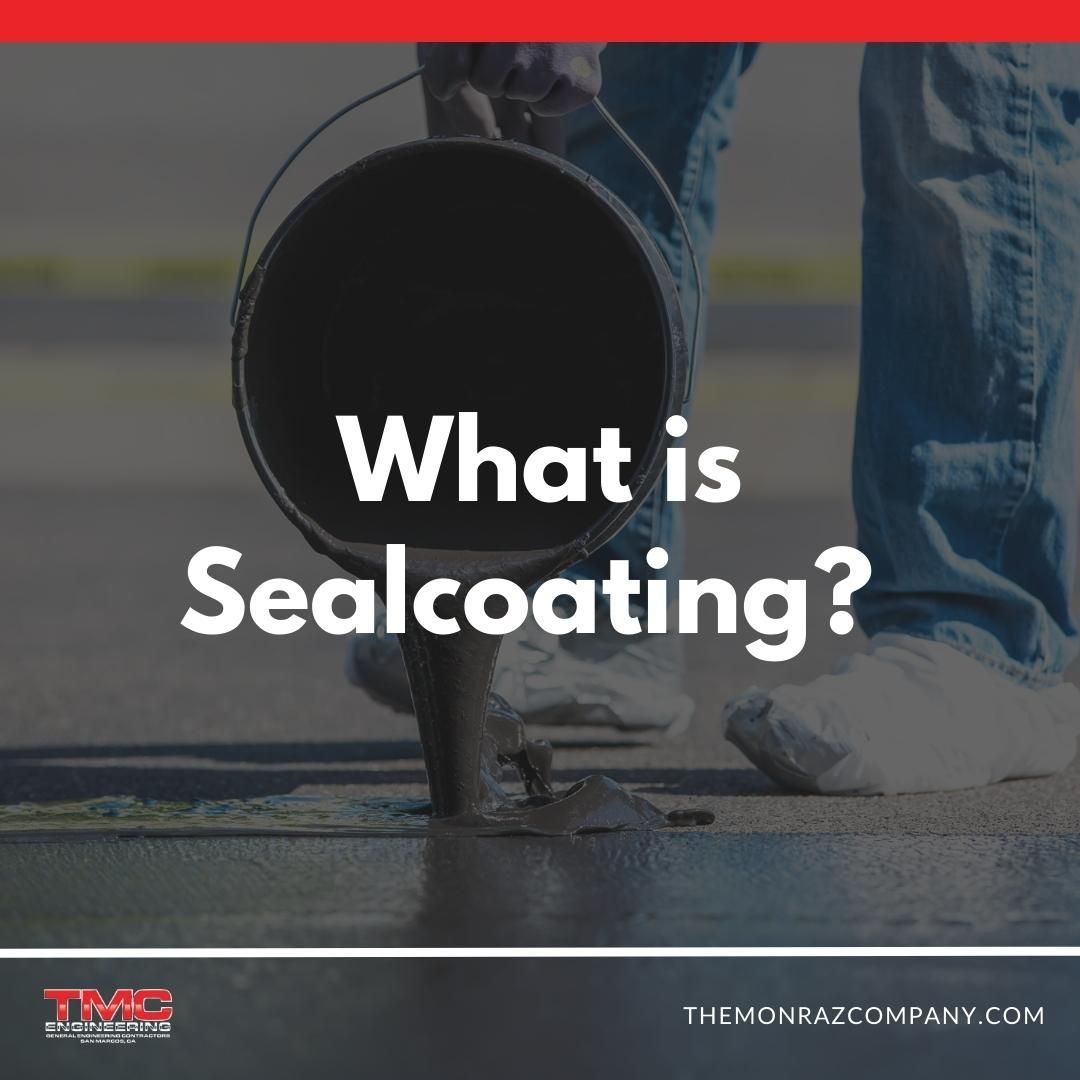
What Is Sealcoating?
Sealcoating is a process that involves applying an additional layer or membrane on top of asphalt-based pavements and driveways. This layer acts as a protective shield, safeguarding the asphalt surface from various external elements and minimizing damage.
This sealant, also known as asphalt sealer, is typically made from a mixture of refined coal tar or asphalt emulsion. These materials are carefully formulated to provide durability, flexibility, and resistance to UV rays, salt, oil, and other harmful substances that can degrade the asphalt surface over time. There are also additional sealant materials available such as acrylic-based sealers .
By employing asphalt sealcoating, property owners can significantly extend the life of their pavements and driveways. The sealcoat product is designed to safeguard the asphalt surface from weather elements, oxidation, and daily wear and tear.
Though this preservation is highly dependent on factors such as climate, traffic, and maintenance, sealcoating can help ensure that your driveway or pavement remains in optimal condition, preserving its integrity for years to come.
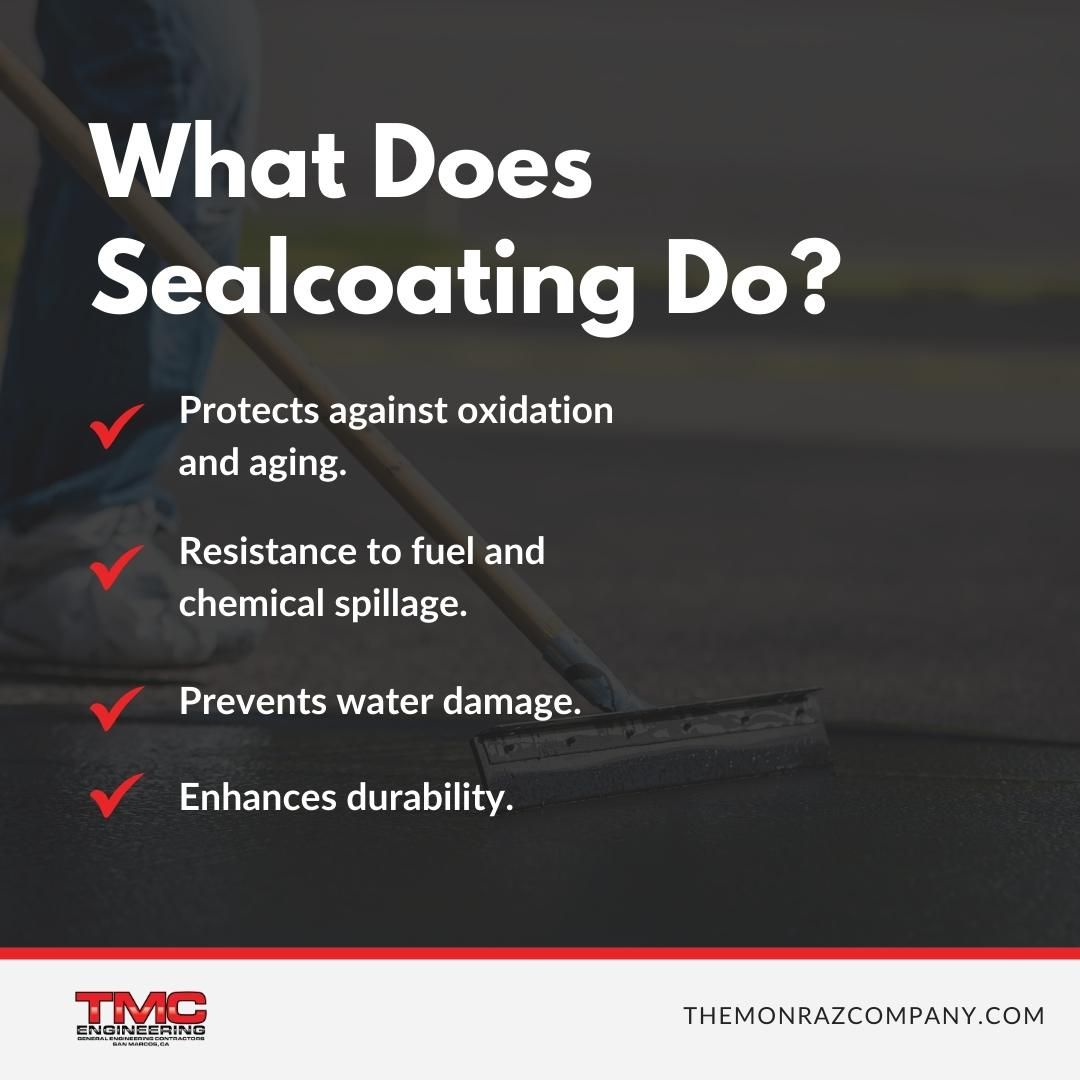
What Does Sealcoating Do?
Protects against oxidation and aging.
Sealcoating acts as a barrier that shields your asphalt surface from oxidation, which occurs due to exposure to oxygen and UV rays. This protective layer prevents the asphalt from becoming brittle, fading, and developing cracks, ensuring a longer lifespan for your driveways and pavements.
Resistance to fuel and chemical spillage.
Sealcoating creates a protective shield against fuel and chemical spillage, such as oil, gasoline, and other substances. This prevents the penetration of these harmful materials into the asphalt surface, minimizing the risk of deterioration and costly repairs.
Prevents water damage.
Sealcoating helps to prevent water from seeping into the asphalt pavement. By sealing the surface, it reduces the potential for water damage, including cracks, potholes, and weakened structural integrity caused by freeze-thaw cycles .
Enhances durability.
The application of sealcoat strengthens the asphalt surface, making it more resistant to heavy traffic, vehicle weight, and general wear and tear. It provides an additional layer that can withstand the impact of daily usage and prolong the life of your driveways and pavements.
By taking advantage of sealcoating, you can protect your investment and ensure that your asphalt driveways and pavements remain in excellent condition for years to come.
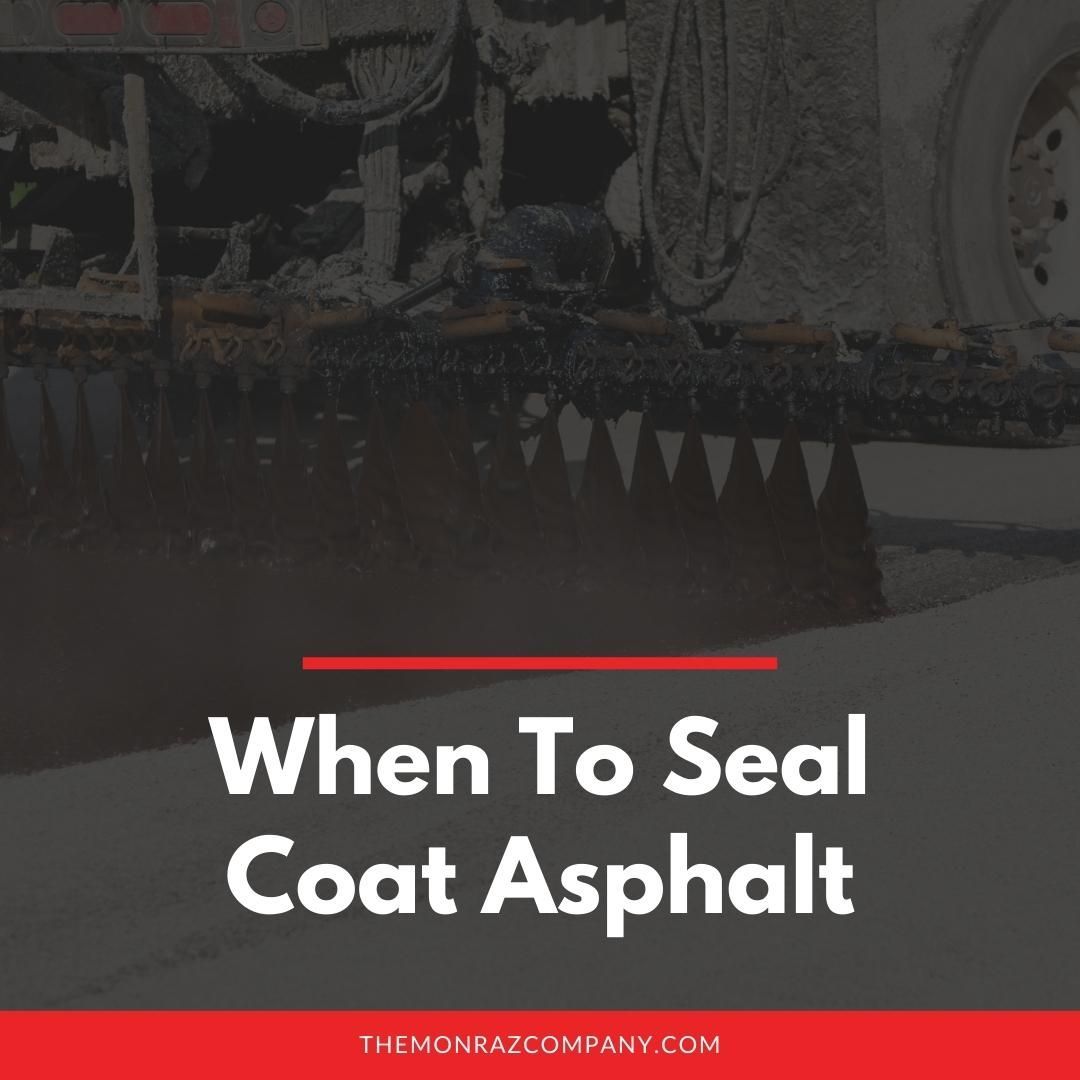
When To Seal Coat Asphalt
If you want your seal coat to adhere effectively to the surface, proper timing is essential . In fact, it’s non-negotiable!
Here are some recommendations for when to seal coat asphalt.
When to Seal Coat a New Asphalt Driveway and Parking Lot
Sealing a new asphalt driveway or parking lot requires proper timing to allow for curing and optimal bonding. It is generally recommended to wait a minimum of six months before applying sealcoating to a newly installed asphalt driveway. This time frame allows the asphalt to fully cure and settle, ensuring the best adhesion and long-lasting results.
During this initial period, it is important to monitor the condition of the asphalt surface. Once the six-month mark has passed, check for signs of wear, fading, or small cracks. If the pavement is in good condition, it is an indication that it is time to proceed with sealcoating.
Best Time to Seal Coat a Driveway and Parking Lot
The ideal time to seal coat an existing asphalt driveway or parking lot is during dry and mild weather conditions. The temperature should be consistently above 50 degrees Fahrenhei t for successful application and proper drying of the sealant. It is advisable to avoid sealcoating during extremely hot or cold weather, as it can affect the effectiveness of the seal coat application.
Additionally, it is essential to seal the coat when the asphalt surface is clean and free from debris, dirt, or oil stains. Thoroughly clean the driveway or parking lot before applying sealcoating to ensure optimal adhesion and a smooth finish.
When to Seal Coat Again
Over time, the protective properties of sealcoating may diminish due to exposure to weather elements, traffic, and general wear. To determine when to reseal your driveway, there are a few indicators to look out for:
- Fading : If the color of your asphalt starts to fade significantly, it may be time to consider resealing. Fading can be a sign of UV damage and loss of the protective seal coat.
- Cracks and Potholes : Monitor your driveway for the development of cracks and potholes. If you notice an increase in these issues, it may be an indication that the seal coat has worn off, and a fresh application is needed to prevent further damage.
- Water Absorption : If water is no longer beading on the surface of your driveway and is instead being absorbed, it suggests that the sealcoating has deteriorated. Resealing can help restore the waterproofing properties of your asphalt surface.
Perfect Weather for Seal Coating
Temperatures should be above 50°F and rising with no rain in sight. Avoid windy or excessively humid days. Early mornings or evenings are best in the hot summer months. A light misting of water can prep the surface if it’s an extremely hot day. Following these weather guidelines will help the seal coat adhere and cure correctly.
By staying vigilant and addressing these signs, you can maintain the effectiveness of the seal coat and ensure the ongoing protection of your asphalt driveway. Regular inspections and timely resealing will contribute to the longevity and durability of your pavement. It is also important to note that specific weather conditions for sealcoating may vary by region so you will need to consult experts. Yes, you thought right – we’re the right experts to consult !
Extend the life of your asphalt with sealcoating!
Sealcoating is easily one of the main parts of asphalt maintenance! It helps you protect your investment and extend the life of your asphalt driveway or parking lot. By creating a shield against UV rays, harmful substances, and the elements, sealcoating ensures your asphalt surface remains durable. Not to mention, they are more visually appealing for years to come!
Remember to consider the weather conditions and the age of your asphalt when determining the ideal time for sealcoating. So, t ake the necessary steps to protect your driveway and enjoy the benefits of a well-maintained asphalt surface!
As always, safety and quality are our top priorities at TMC Engineering. Stay tuned for more informative posts and exciting updates from our page . We also offer a wide range of services from asphalt paving to striping, sealing, crack filling , and concrete projects . Together, we can complete exceptional projects that stand the test of time!
TMC is happy to do this for you! Just contact us for a free quote today.


